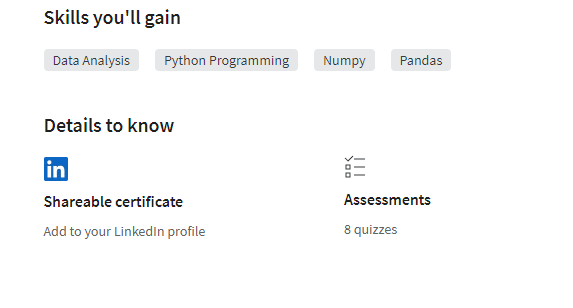First and foremost, my online research has provided me with a comprehensive understanding of MOOC, an acronym for “Massive Open Online Course.” These courses are accessible to a wide audience through the internet and aim to provide learning opportunities to individuals regardless of their geographical location, educational background, or qualifications. Typically offered by various educational institutions and professionals globally, MOOCs cover an array of subjects, including but not limited to science, technology, engineering, mathematics, and humanities. They facilitate learning through diverse resources such as online videos, reading materials, interactive discussions, and quizzes, often culminating in certification or credits. What sets MOOCs apart is their flexible learning environment, allowing participants to learn at their own pace and based on their personal interests.
Motivated by this understanding, I enrolled in the “Data Processing Using Python” course organized by Nanjing University, a program recommended by the instructor. Successful completion of this course is expected to equip me with skills in Data Analysis, Python Programming, Numpy, and Pandas. Spanning over three weeks and totaling 27 hours, the course structure involves self-paced online learning, with the instructor releasing weekly instructional videos accompanied by corresponding assessments. While this mode of learning is conducive to independent and self-directed learners, one limitation lies in the minimal interaction among peers and the absence of a significant instructor presence.
Nonetheless, I am convinced that the educational philosophy underpinning MOOCs promotes openness and autonomy. Participants, whether students or professionals seeking to acquire specific skills, have the freedom to actively search for MOOC platforms and select courses that best suit their learning objectives. MOOCs are particularly advantageous for working professionals who require additional skills for specific projects but face constraints in attending traditional, lengthy college courses. In contrast, MOOCs offer the flexibility of online participation, allowing individuals to learn at their own convenience and pace, effectively utilizing fragmented time slots for self-improvement and professional development. Thus, I find this open learning approach to be highly effective and accommodating, catering to the diverse needs of modern learners.

Leave a Reply